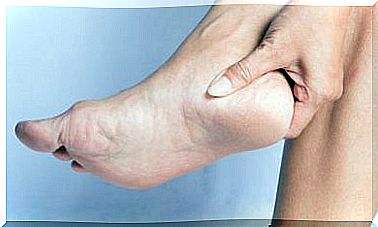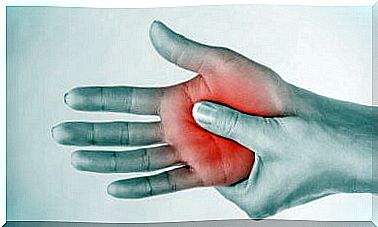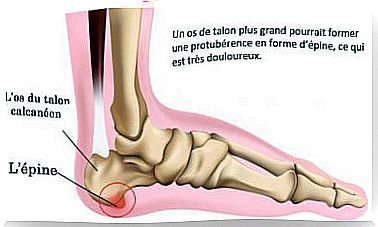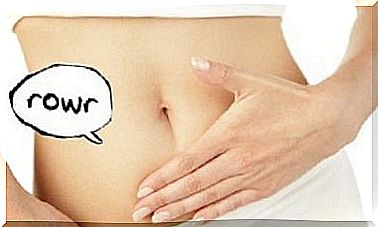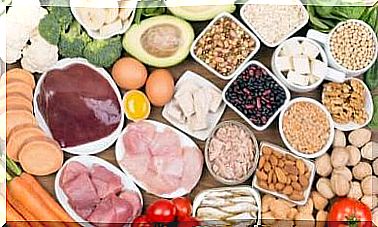Irritable Bowel Syndrome And Diet
What to eat if you have irritable bowel syndrome?

The diet has a very important effect on the symptoms of irritable bowel syndrome, as many studies have shown. IBS is one of the most common gastrointestinal illnesses of our time.
People with irritable bowel syndrome may have difficulty in living a normal life because of the symptoms they may have. Diet control is therefore a great help in preventing discomfort and pain.
That is why in this article we tell you how to improve this situation. We invite you to read on and learn more about irritable bowel and diet.
What is irritable bowel syndrome?
Irritable bowel syndrome (IBS, also known as irritable bowel), is a chronic functional disorder of the digestive system. Its main symptoms are abdominal pain or discomfort, abdominal swelling and an alteration of the tract (constipation or diarrhea).
This syndrome is the most commonly diagnosed gastrointestinal disorder. It is also the second leading cause of absenteeism at work after the common cold. Between 10 and 20% of the population has symptoms of irritable bowel throughout their lives. However, only 15% of those affected see a doctor.
Irritable bowel and diet

The diet of the person with irritable bowel syndrome should be adapted to each case. As general guidelines, we can highlight:
- Moderate the consumption of insoluble fiber: in order to no longer contribute to imbalances in intestinal transit
- Promote the consumption of soluble fibers in the diet, in the form of gums, pectins and mucilages. We can do this through food via vegetables that help our digestive health
- Avoid foods high in fat, citrus fruits (especially orange) and spinach. This will reduce and neutralize the laxative effect produced by bile salts in the colon
- Decrease the consumption of fructose: it is a type of simple sugar that is mainly found in fruits. Choose fruits lower in sugar and higher in pectin, such as apples with the skin on. It is not appropriate to drink fruit juices or nectars
- Completely eliminate the intake of sweeteners like sorbitol, spicy foods or spices, gas (in drinks), coffee and tea
- Drink two liters of water a day: it is very important to ensure hydration in case of diarrhea. It is recommended to drink water or mild infusions such as lime blossom and lemon verbena, which do not have a laxative effect. Plus, getting enough fluids will also help with constipation.
Irritable bowel syndrome and the FODMAP diet
The FODMAP diet was developed by researchers at Monash University in Australia. The term FODMAP is an acronym derived from English. It signifies : Fermentable Oligo-, Di-, Mono-saccharides And Polyols. Thus, the FODMAP diet is low in fructose, lactose, fructans, galactans and polyols. These are present in the following foods:
- Fruits: like apples and pears
- Vegetables: such as onion, asparagus and garlic
- Legumes: such as peas, soybeans and lentils
- Cereals: wheat and derivatives, rye and barley
- Dried fruits
- Dairy products: milk, cheese, ice cream and yogurt. Assess tolerance
- Artificial sweeteners: products containing sorbitol (E420), mannitol (E421), isomalt (E953), maltitol (E965) and xylitol (E967), etc.
Relationship between irritable bowel syndrome and the FODMAP diet
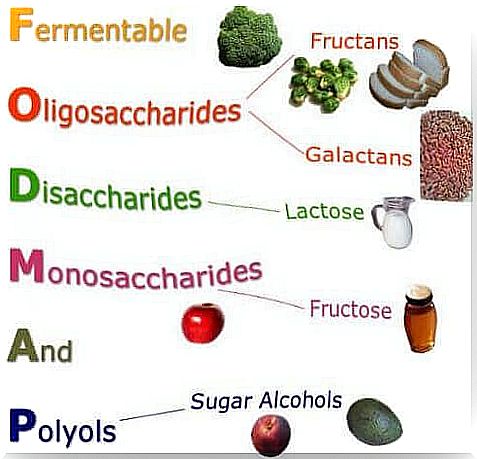
Oligosaccharides, disaccharides, monosaccharides, and polyols in some people are not 100% absorbed in the small intestine.
Therefore, these unabsorbed carbohydrates therefore continue on their way to the large intestine. There, they serve as food for the bacteria that normally live there. The bacteria ferment FODMAPs and cause the symptoms described in the definition of irritable bowel syndrome.
Therefore, a diet low in FODMAP can help reduce symptoms of irritable bowel syndrome and other inflammatory bowel diseases like ulcerative colitis or Crohn’s disease.
What do the studies say? Is there a consensus?
Following the first Australian research in 2005, several studies evaluated the possible effect of the FODMAP diet on irritable bowel syndrome.
There is a lot of research supporting the positive effects of this diet on IBS patients. They also provide evidence for the use of the FODMAP diet as a treatment. But other researchers and health professionals doubt the design and effectiveness of the diet as a treatment for IBS.
This is because some studies have found that there is little evidence to support the hypothesis and that the studies available to date have significant limitations. Nevertheless, the design and monitoring of the FODMAP diet by a dietitian-nutritionist is essential.

